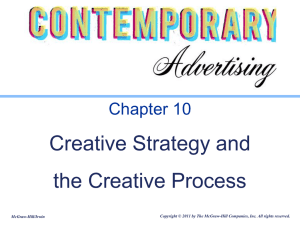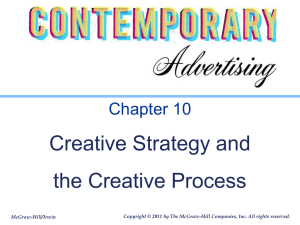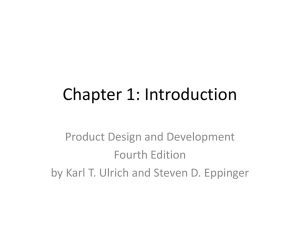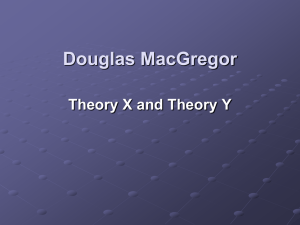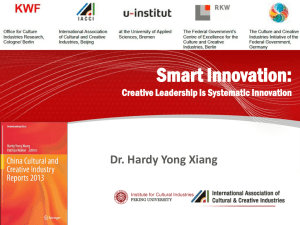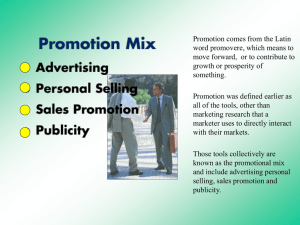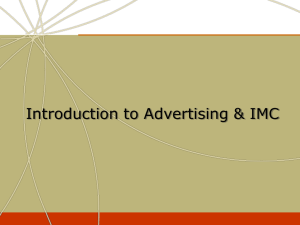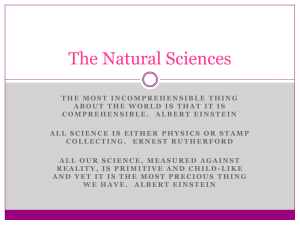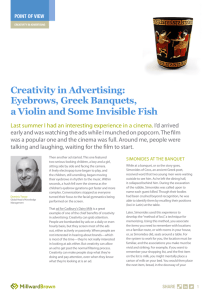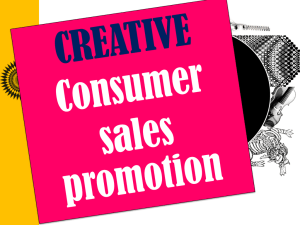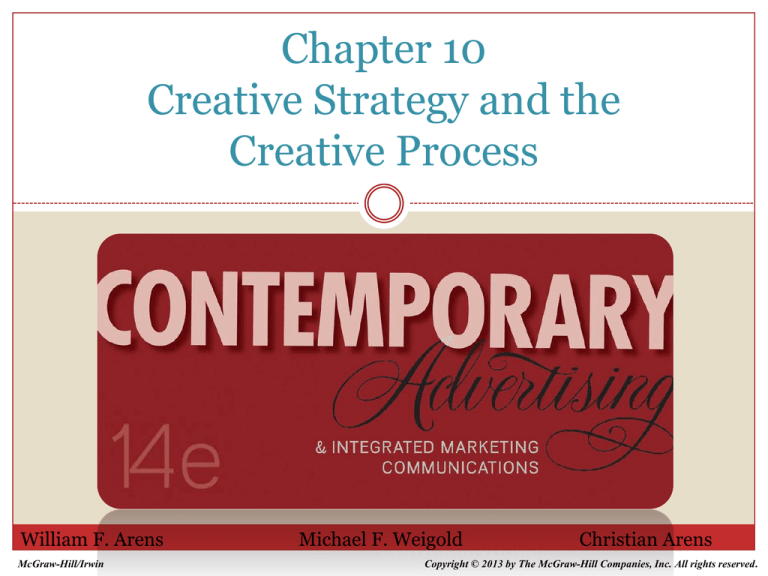
Chapter 10
Creative Strategy and the
Creative Process
William F. Arens
McGraw-Hill/Irwin
Michael F. Weigold
Christian Arens
Copyright © 2013 by The McGraw-Hill Companies, Inc. All rights reserved.
Chapter Overview
How IMC strategies are translated into
creative briefs and message strategies that
guide creativity
10-2
Chapter Objectives
Discuss the attributes of
creativity
Describe how creative
strategy is developed and
used
Elaborate on ways that
creativity enhances
advertising
Explain the role that
agency talent plays in the
creative process
10-3
The Creatives
The Creative Team
Creative
Director
Copywriter
Art Director
Verbal
message
Nonverbal
ad design
10-4
What Makes for Great Creative?
Audience Impact
“BOOM”
Gets your
attention…
now!
Informational
Transformational
Problem
relief
Positive
reinforcement to
offer a reward
Often lack big idea or fail in
execution
10-5
What Makes for Great Creative?
Strategic Relevance
An ad may be
entertaining but if
it isn’t relevant to
the advertising
strategy, it WILL
fail.
10-6
Q. 1. What are the two dimensions on
which advertisements are measured?
Dimensions
Resonance
Relevance
10-8
Q. 2. What are the components of an
advertising strategy?
Elements of Advertising Strategy
Target
Audience
Advertising
Message
Product
Concept
Communications
Media
10-10
Elements of Advertising Strategy
as Interpreted by Target
Target Audience
Value conscious adults, 25-49, families
18-25 key influencials
Product Concept
“Cheap chic”
IMC Message
Communications Media
TV and newspapers
Some outdoor, radio, digital media
10-11
Writing the Creative Brief
Issues to Consider
Who?
Why?
What?
Where? When?
What Style? Approach? Tone?
What will the copy say?
10-12
Rational and Emotional Appeals
10-13
Writing the Creative Brief
Brief Elements
Objective statement
Support statement
Tone or brand
character statement
10-14
Q. 3. What are the three components
of a message strategy?
Message Strategy
Verbal
Nonverbal
Technical
I’m
late!
10-16
Message Strategy
Verbal
I’m
late!
Nonverbal
Technical
Looks at
watch
Camera
crew films
10-17
Message Strategy
Color and logo nonverbals make this Target
ad instantly recognizable
10-18
Creativity
Creativity—
combining two or
more previously
unconnected objects
or ideas into
something new
10-19
Q. 4. How does creativity help
advertising?
Creativity’s Roles
Inform
Fact-Based
Thinking
Persuade
Remind
vs.
“Boom”
Value-Based
Thinking
10-21
Creativity’s Roles
Creativity’s Roles
Inform
Fact-Based
vs.
Thinking
Persuade
Remind
“Boom”
Value-Based
Thinking
10-22
Understanding Creative Thinking
Thinking
Styles
Thinking
Categories
Hard
Fact
based
Soft
Value
based
10-23
Q. 5. What are the steps in the creative
process?
The Creative Process
Explorer
Insight
Outlook
Know
Objective
Brainstorm
10-25
The Creative Process
Artist
Transform the
concept
Adapt
Reverse
Compare
Parody
Imagine
Connect
Eliminate
10-26
The Creative Pyramids
10-27
The Creative Process
Judge
Is this idea an ah! or an uh-oh?
What’s wrong and right with this idea?
What if it fails? Is it worth the risk?
What is my cultural bias?
What’s clouding my thinking?
10-28
The Creative Process
Leo Burnett’s
GPC Rating
Scale
10
World class
9
New standard in advertising
8
New standard in product
category
7
Excellence in craft
6
Fresh idea(s)
5
Innovative strategy
4
Cliché
3
Not competitive
2
Destructive
1
Appalling
10-29
The Creative Process
Warrior
Strategic precision
Savvy psychology
Polished presentation
Structural precision
Solve the problem
10-30

